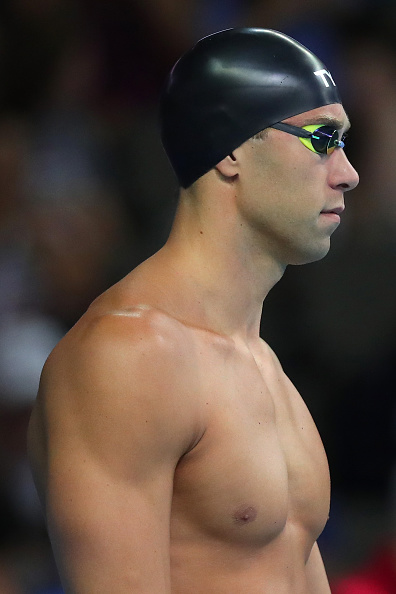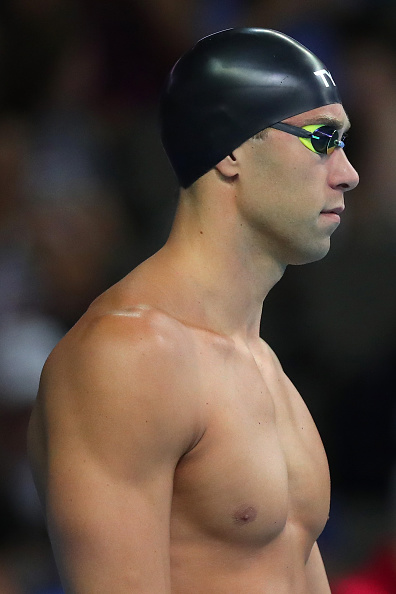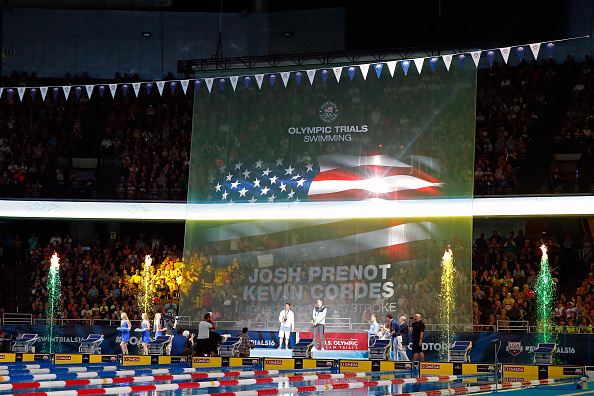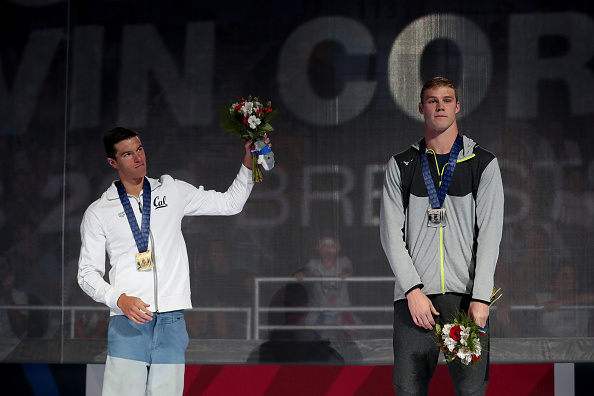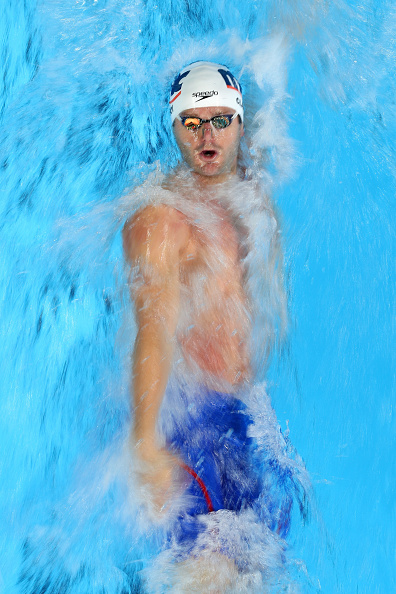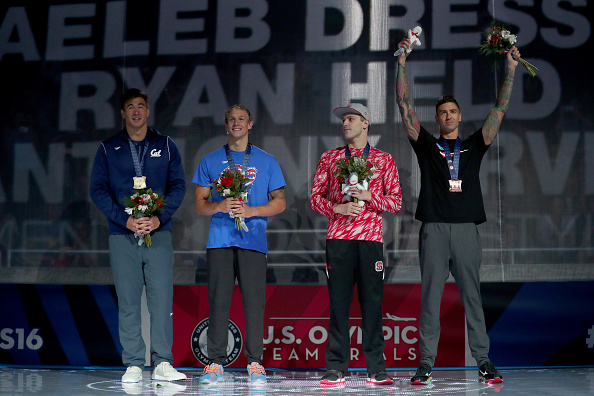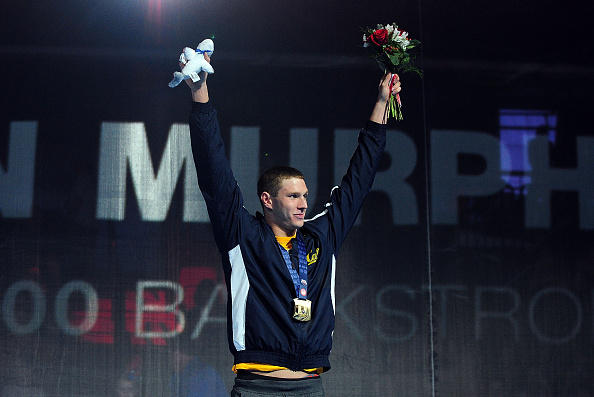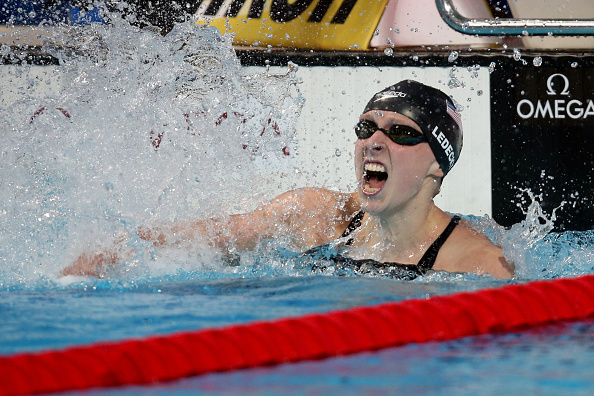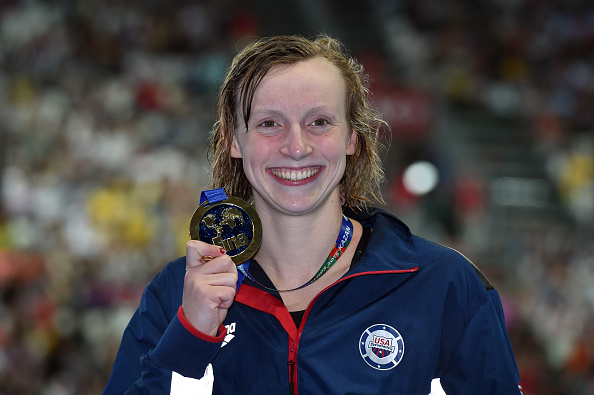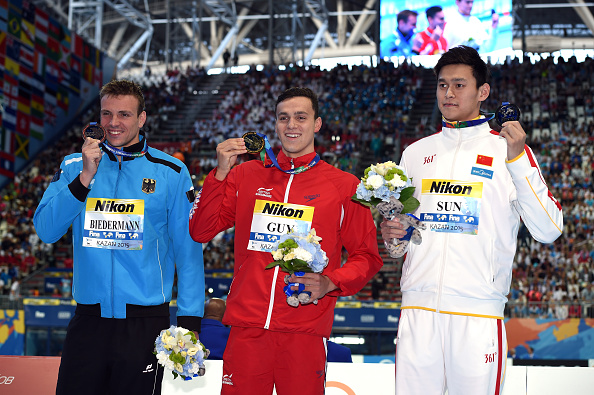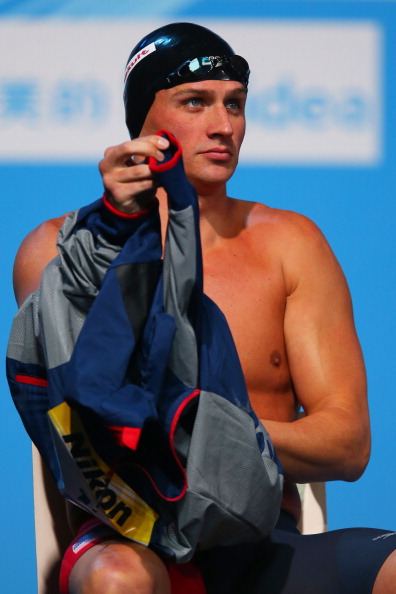OMAHA — So many clichés: Time waits for no one. To everything there is a season. Don’t be glad it’s over — smile because it happened. Perhaps there is wisdom to be found in all of these aphorisms. But at the U.S. swim Trials, sayings make for little, if any, consolation when the hard truth makes itself plain. When world-class swimmers and even better people, the likes of Matt Grevers, come up just short.
As a general rule, the math at the swim Trials is blunt but eminently fair: first two in any event go to the Games. At the track Trials, it’s top three. Swimming — only two.
Everyone else — thanks but, well, sorry.
Grevers took third in his best event, the men’s 100 backstroke.
As he said Thursday, “There’s no room for me.”
This is also the way it is, and has to be. The Trials are rough that way.
Consider Missy Franklin. Seventh in the women’s 100 back — out. Second in the 200 free — in. Eleventh after Thursday's semis of the 100 free — out, not even in Friday's final.
“My 100’s just — that speed just doesn’t feel like it’s quite there this meet,” Franklin said Thursday evening. “No idea why. It’s super-disappointing but, you know, I really feel like my endurance is there so it gives me a lot of hope for my [200] back,” with prelims in that event getting underway Friday.
Josh Prenot won the men’s 200 breaststroke Thursday evening, in an American-record 2:07.17, the best time in that event in the world in 2016. Earlier in the week, he had finished third in the 100 breast.
“Yeah,” he said after that 200, “I mean this is my last [Trials] race, my last chance to make the team. I didn’t feel like waiting another four years, so the pressure was on.”
Three guys in that 200 breast went 2:08.14 or better — Prenot, Kevin Cordes and Will Licon. Only four guys in the world have gone that fast this year.
Licon, third, missed out by 14-hundredths of a second.
When you win, it's all good. You maybe even earn the right to try stand-up comedy.
Prenot said, “So it’s pretty cool to see the progression,” the uptick in American breaststroking, following that up with an indirect reference to British standout Adam Peaty, “I guess we’re becoming more like England, where we’re pretty good at breaststroking and pretty bad at soccer.”
Lilly King just finished her freshman year at Indiana. She won the women’s 100 breaststroke earlier in the meet and on Thursday put up the fastest time in the 200 breast semifinals. She observed, “It’s sad to see those faces go in so many events — but nice to see new faces come up.”
Absolutely true all around.
Which doesn’t make it any easier for Grevers, or the many people who have come to appreciate him, and others, who for years have been mainstays on the U.S. team but won’t be going to Rio.
Or maybe still will — time will tell.
Tyler Clary won gold in the London in the men’s 200 backstroke. Here, he finished seventh in the 200 free. On Thursday, in the semifinals of the 200 back, he put up the third-best time. The final is Friday.
“At this point,” Clary said Thursday evening, “every swim that I get now I’m treating it like my last swing, because it certainly could be, and swimming has given me a whole different perspective.”
In London four years ago, Grevers won the 100 back.
All in, across the 2012 and 2008 Games, he has six Olympic medals, four gold, two silver.
He has seven long-course world championships medals. Two came at last summer's world championships in Kazan, Russia.
Here on Tuesday, in the 100 back Trials, Ryan Murphy won, in 52.26 seconds. David Plummer took second, two-hundredths behind.
Grevers touched third, in 52.76, a half-second back of Murphy.
In the 100 free, Grevers managed 15th in the semifinals. The top eight go on to the final, which Nathan Adrian, the London 2012 champ, won Thursday in 47.72.
In that 100 free, another great guy, Anthony Ervin, made the team — and this is the caveat to the top-two rule. Top four in certain events make the relays. Time apparently does wait for some people: the 35-year-old Ervin took fourth.
“If we’re not here to inspire the next generation,” Ervin told the crowd at Century Link arena, “I don’t know what we’re doing.”
In the 200 back prelims Thursday morning, Grevers put up the 14th-best time. That qualified him for Thursday night’s semifinals. But recognizing it was hardly his best event, he scratched out. Murphy posted the top semi time, 1:55.04.
Murphy, who turns 21 Saturday, said after the 100 back:
“Well, I mean, my heart goes out to Matt.
"He's a super-nice guy. I have a great relationship with Matt. He was born in Chicago, I was born in Chicago, so I feel like we kinda got that Midwestern-upbringing connection, and he's been someone I've gotten along with really well, and he's definitely been a role model of mine and someone I've looked up to. So it was super-cool to be in the race with him, just as it is any other time.
“You know, it just turned out in my favor tonight."
After Tuesday’s 100 back final, Grevers stuck around Century Link arena to sign autographs. For, like, more than an hour.
He was amazed, he would say in remarks published Thursday at the Washington Post website, at the affection fans had for him, and he for them.
“Feeling the love from these fans … I actually feel more loved than ever, and I’m really high again. It was awesome. They were all so thankful and happy. I don’t know if people feel that much love in one night. And I didn’t even do well. That was pretty awesome, [to] get that sort of feeling even after you think you’re disappointing people.”
No one needs to cry for Matt Grevers.
Just, like the fans here the other night, appreciate him.
Grevers is 31. His wife, Annie, herself a standout American swimmer, is pregnant.
The two became a social media sensation when, in February 2012, he proposed to her at the end of a meet in Missouri — while he was on the medals stand.
Grevers — who has been training for the past several years in Arizona — is from Lake Forest, Illinois, north of Chicago. He is without question the best swimmer to have ever come out of Northwestern. A 2007 graduate, he served as grand marshal of the school’s 2008 Homecoming parade.
There are all kinds of stories about what a class act Grevers is.
Here’s one:
At the 2013 world championships in Barcelona, the U.S. men appeared to have won gold in the 4x100 medley relay. A historical note: the U.S. men have dominated the medley since the 1976 Montreal Games.
But wait.
The Americans would be disqualified when the electronic timer caught Cordes -- the new guy on the relay, with the likes of Grevers, Adrian and Ryan Lochte -- jumping precisely one-hundredth of a second too soon. Cordes was doing the breaststroke leg; he swam just after Grevers, who pulled the backstroke segment.
Yes, it was Cordes who got tagged. But, afterward, it was Grevers who stood up and held himself accountable.
“It’s as much my fault or more than Kevin’s,” he said. “The guy coming in is usually the one responsible.”
Here, Cordes has been a standout in the breaststroke events, winning the 100 breast and taking second in the 200, behind Prenot.
"The sport of swimming is unforgiving," Grevers said Thursday. "There's not too many ways to make a livelihood in swimming unless you're pretty much on the Olympic team."
He also said, "There's always that battle: When do you step away? On top? Where would I feel satisfied? I feel very satisfied. I didn't bomb or anything."
Indeed. As he said in the very next breath: "I got third."

